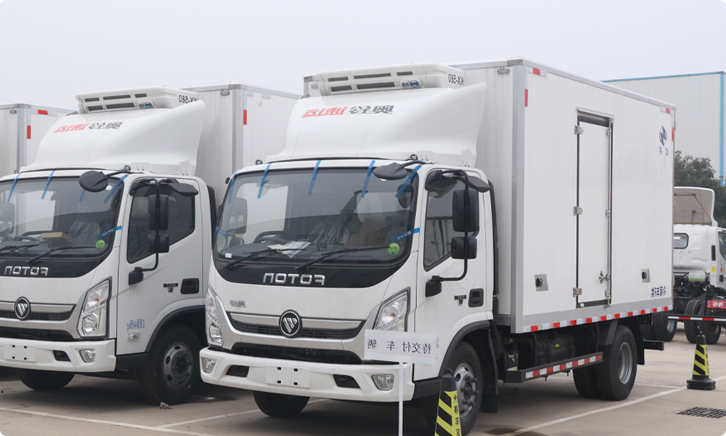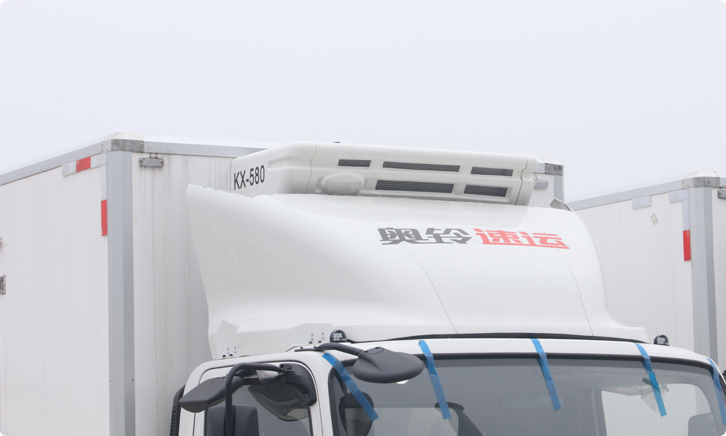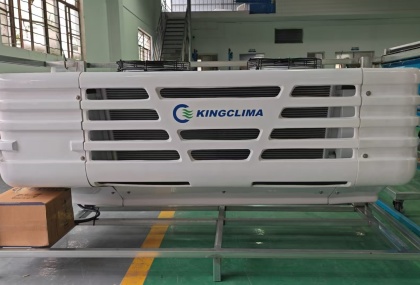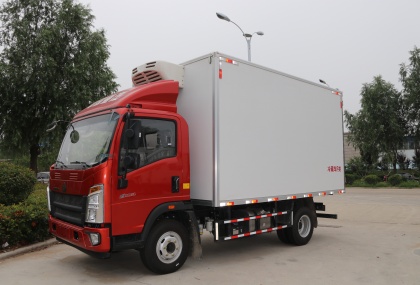How to choose a transportation refrigeration?
Choosing an aftermarket transportation refrigeration unit requires careful consideration of your specific needs, cargo requirements, and budget. Here's a comprehensive guide to help you make the best choice:

1. Understand Your Requirements
a. Cargo Type
- Identify the type of goods you will transport (e.g., fresh produce, frozen foods, pharmaceuticals).
- Determine the temperature range required for your cargo (e.g., chilled, frozen, or multi-temperature zones).
b. Vehicle Type
- Match the refrigeration unit to your vehicle's size and type (e.g., van, truck, trailer).
- Consider the vehicle’s load capacity to ensure the refrigeration system does not exceed weight limits.
c. Operational Needs
- Assess your delivery patterns:
- Urban Deliveries: Require quick temperature recovery due to frequent door openings.
- Long-Haul Deliveries: Need high efficiency and reliability for extended periods.

2. Key Features to Consider
a. Temperature Control
- Look for systems with precise temperature control to maintain cargo quality.
- Consider units with multi-temperature capabilities if transporting varied products.
b. Power Source
- Engine-Driven Units: Powered by the vehicle’s engine; suitable for vehicles with sufficient engine capacity.
- Electric Units: Ideal for vehicles with battery systems; they reduce fuel consumption and emissions.
- Stand-Alone Units: Use an independent power source, providing greater flexibility.
c. Fuel Efficiency
- Choose a unit with low energy consumption to save on operational costs.
- Modern units often come with energy-efficient designs and advanced insulation.
d. Noise Levels
- For urban deliveries or residential areas, consider low-noise refrigeration units to comply with noise regulations.
e. Build Quality and Durability
- Select a unit built with high-quality materials that can withstand harsh conditions, vibrations, and long-term use.
- Check for weatherproofing and corrosion resistance.
f. Ease of Installation and Maintenance
- Ensure the unit is compatible with your vehicle and easy to install.
- Look for systems with accessible parts and straightforward maintenance procedures.
g. Monitoring and Control Systems
- Modern units often include digital controls for temperature adjustment and real-time monitoring.
- Remote monitoring capabilities can help track and manage the system efficiently.
3. Consider the Manufacturer
- Reputation: Choose a reliable brand with a proven track record in the industry.
- After-Sales Support: Ensure the manufacturer offers warranty, technical support, and readily available spare parts.
- Customization Options: Some manufacturers provide custom solutions tailored to specific transport needs.
4. Regulatory Compliance
- Check for compliance with local and international refrigeration and emissions standards.
- Ensure the unit uses eco-friendly refrigerants with low global warming potential (GWP).
5. Cost Analysis
a. Initial Cost
- Compare prices from different manufacturers and distributors.
- Factor in installation costs.
b. Operating Costs
- Evaluate fuel consumption, power usage, and maintenance expenses.
- Higher upfront costs for an energy-efficient unit may result in long-term savings.
c. Longevity
- Invest in a unit with a longer service life, even if it costs more initially, to reduce frequent replacements.
6. Seek Recommendations and Reviews
- Consult with industry peers or fleet operators for recommendations.
- Read customer reviews and testimonials to gauge performance and reliability.
7. Test Before Purchase
- Request a demonstration or trial if possible to assess the unit's performance under real-world conditions.
8. Future-Proofing
- Consider whether the unit can be upgraded or adapted to new technologies, such as hybrid or fully electric systems.
- Ensure compatibility with future vehicle upgrades or replacements.
Conclusion
Selecting the right aftermarket transportation refrigeration unit involves a balance of functionality, efficiency, and cost. By thoroughly evaluating your needs, comparing options, and prioritizing quality and support, you can ensure that your refrigeration unit meets your requirements and delivers reliable performance. As a professional aftermarket transportation refrigeration supplier, Kingclima offer 7*24 professional and patient help, if you need, please feel free to contact us at anytime!
-
From Farm to Table: Trust Our Refrigeration Systems to Deliver Freshness!
2025-09-26 15:23:09
The journey of perishable goods—from farm harvests to grocery shelves—demands precision, reliability, and unwavering temperature control. Any breakdown in the cold chain can result in spoilage, financial losses, and compromised food safety. That’s why leading logistics providers and food distributors rely on advanced truck refrigeration systems to ensure their cargo arrives fresh, safe, and market-ready.
read more
-
Don’t Let the Heat Spoil Your Haul – Try Our Advanced Refrigeration Systems!
2025-09-26 14:55:58
In the world of perishable freight, temperature control isn’t just a feature—it’s a necessity. Whether you're transporting fresh produce, dairy, pharmaceuticals, or frozen seafood, a single degree of deviation can mean the difference between profit and loss. At kingclima, we engineer high-performance truck refrigeration systems that combat heat, humidity, and harsh conditions—ensuring your cargo arrives in pristine condition, every time.
read more
-
Reliable Cooling for Every Mile – Explore Our Truck Refrigeration Range!
2025-09-25 16:15:32
At kingclima, we understand that your refrigerated cargo represents more than just inventory - it's your reputation, your customers' trust, and your bottom line. Our comprehensive range of truck refrigeration systems delivers military-grade reliability combined with cutting-edge technology to protect your temperature-sensitive shipments across every mile of their journey.
read more


.jpg)

